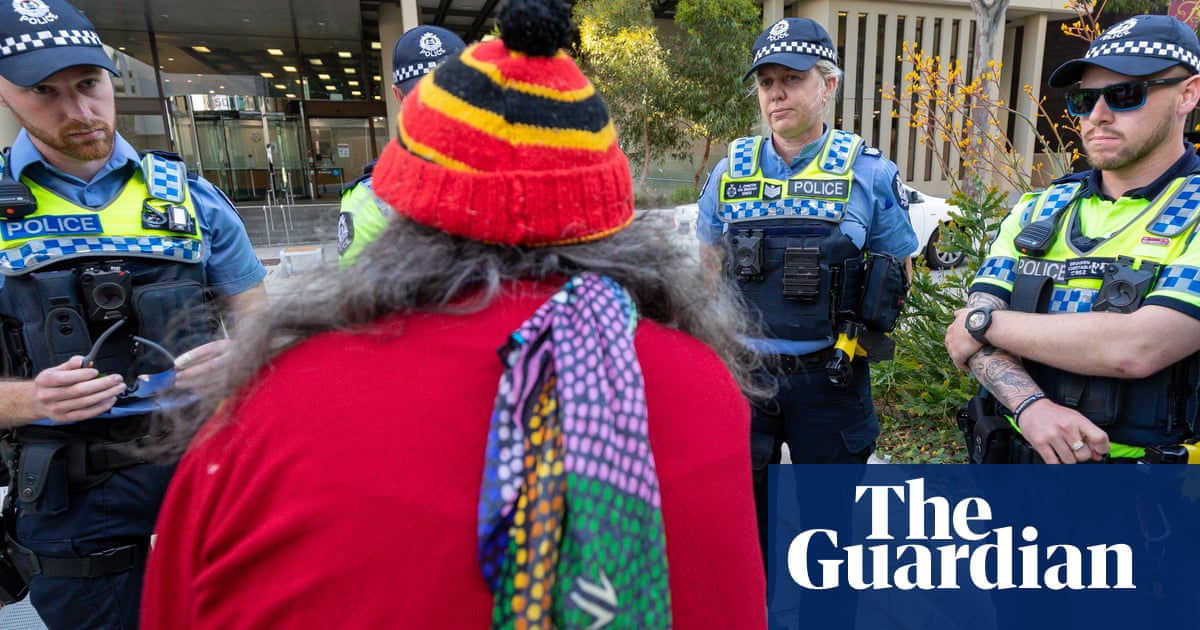Police were not sufficiently trained and did not make meaningful attempts to de-escalate the situation before fatally shooting an Aboriginal woman in a Geraldton street in 2019, a Western Australian coroner has found.
The death of the 29-year-old Ngarlawangga Yamatji Martu woman, known as JC for cultural reasons, was preventable, and more needed to be done “to bring about actual change and improve relations as between the WA Police and Aboriginal communities”, the coroner, Ros Fogliani, said in her determination, which was released on Thursday.
Her nine recommendations included that police, in consultation with Aboriginal people, establish a section or branch “dedicated to improving the relationship between WA Police and Aboriginal persons” and regular, face-to-face, co-designed Aboriginal cultural awareness training, tailored by region.
JC wasshot dead by Brent Wyndham on a residential street in Geraldton, about 400km north of Perth, on 17 September 2019. Her death prompted a snap protest in Geraldton and calls for greater oversight of police shootings and deaths in custody.
Wyndham was acquitted of JC’s murder and of manslaughter in October 2021, telling the WA supreme court he had acted in self-defence as JC was carrying a knife and a pair of scissors.
Sign up for Guardian Australia’s breaking news email
After JC had left their house, her family called police for assistance out of concern for her state of mind, believing her to be volatile and armed with a knife. She had been released from prison weeks earlier, and had spent most of those weeks as an involuntary mental health patient.
Less than a minute elapsed between the first police vehicle arriving at the scene and JC being shot, the coroner said, which “begs the question of what thought, if any, was given to de-escalating the situation before the shot was fired”.
Wyndham had made a “split-second decision” to get out of a police car and move towards JC, the coroner said, shooting her within 17 seconds of leaving the vehicle.
Fogliani rejected Wyndham’s claim that he had no other options but to fire on JC, finding that he had “put himself in the situation where he perceived he needed to fire”, that JC was not an active armed offender and that she had not lunged at Wyndham or stepped towards him, though he may have honestly believed that she did.
“The tenor of the evidence of the attending police officers, and of the submissions of WA Police, is that the incident ended so quickly that there was no time for police to communicate with each other,” the coroner said. “For the same reason, there were no reflections offered by them on how things could have been done differently.
“This reasoning is circular. The incident ended quickly because First Class Constable Wyndham shot JC. The question to explore is whether better coordination and communication could have avoided the incident ending quickly, in this tragic manner.”
Sign up toBreaking News Australia
Get the most important news as it breaks
after newsletter promotion
The officers involved did not sufficiently recognise or consider JC’s mental distress or the contributing cultural and historical context that attended it, she said.
JC’s “premature death, in violent circumstances” not only deprived her son of his mother and caused her family profound grief, it also “sadly reactivated and magnified the historical mistrust and antipathy that many Aboriginal persons feel towards police officers, for reasons that are well known and deeply embedded in the unfortunate and brutal consequences of colonisation”, Fogliani said.
“By the time of the inquest, feelings of angst and anger were reverberating through the Aboriginal communities. This shocking incident risked undoing the very many years of concerted efforts on the part of the Western Australia Police Force (WA Police) to work with Aboriginal communities to foster mutual trust and respect.”
Fogliani also recommended that WA police review the use-of-force training given to police officers and its audit processes, and explore ways to allow mental health practitioners to give advice to police attending calls involving people experiencing a mental health crisis.
“JC fell through the cracks in the system,” Fogliani concluded. “It is my hope that the recommendations I have made will assist in providing some continuity of care and follow up when Aboriginal persons are removed from Country, for treatment.”
Indigenous Australians can call13YARNon 13 92 76 for information and crisis support; or call Lifeline on 13 11 14, Mensline on 1300 789 978 or Beyond Blue on 1300 22 4636
